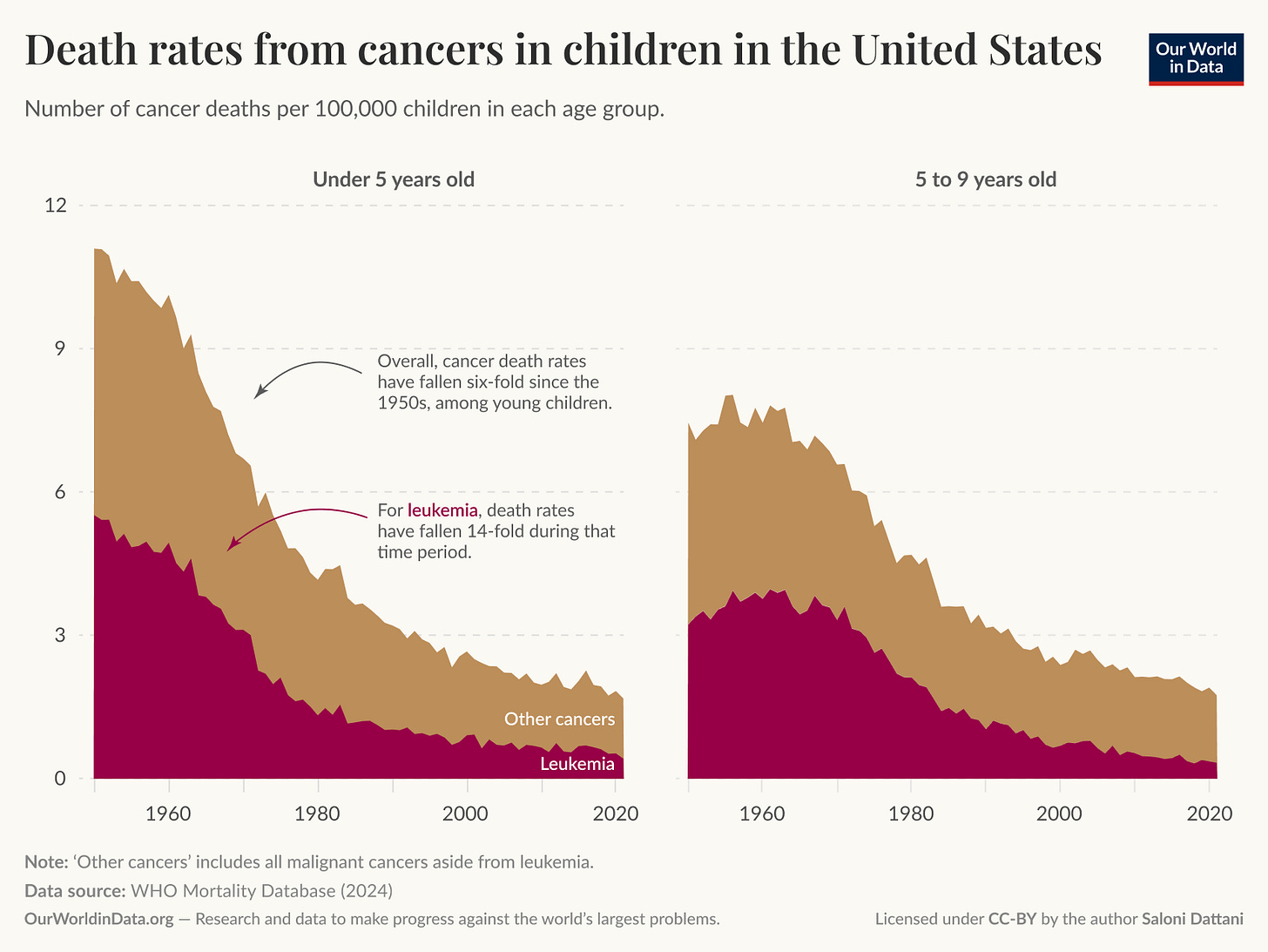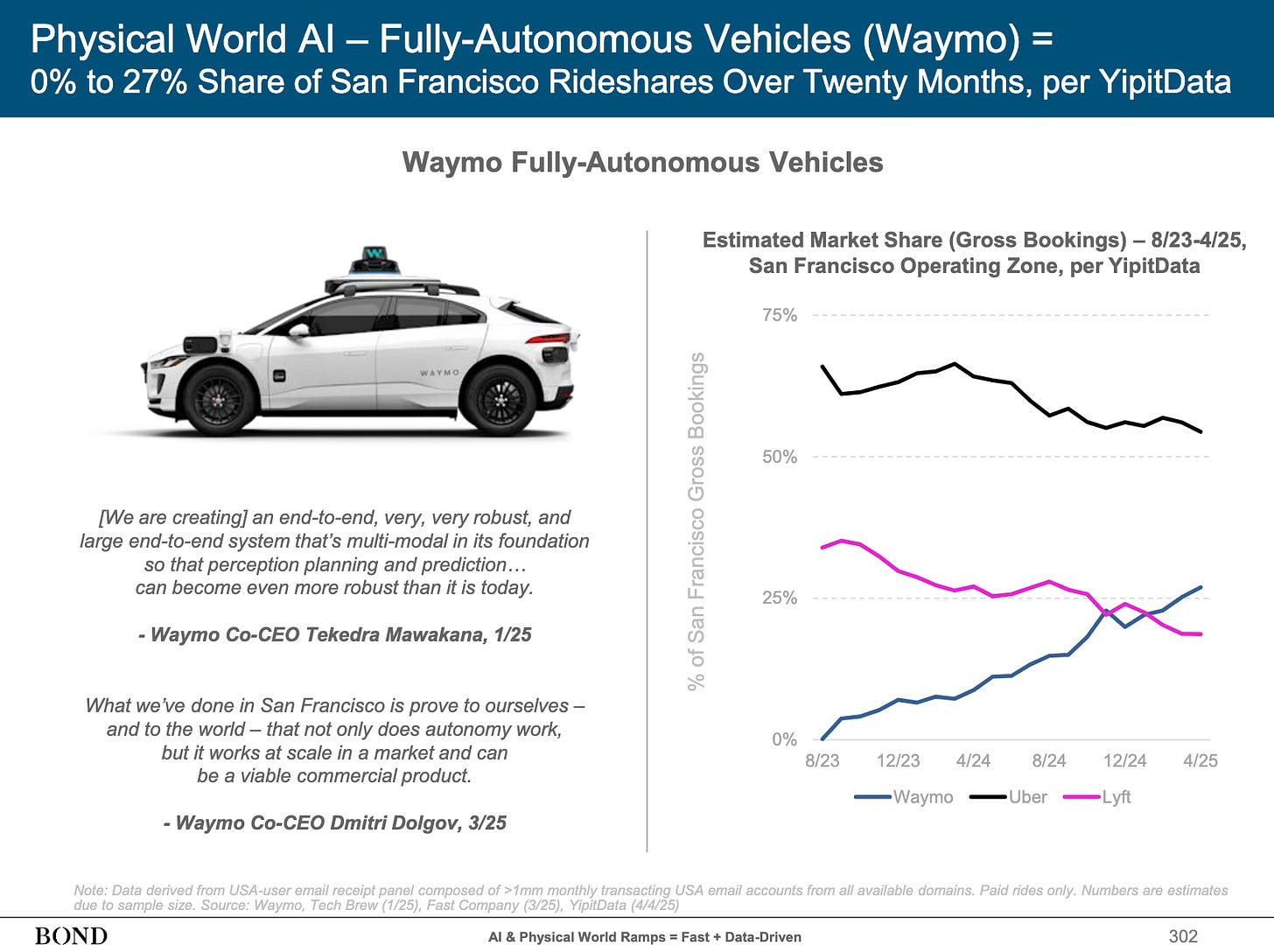Weekly Progress Roundup
New poverty estimates, a decline in sex-selective abortion, beaver recolonization, and more.
Announcements
This summer, our managing editor Chelsea Follett will be speaking at Cato University, an educational conference for college and graduate students who want to better understand the ideas and policies that foster free, prosperous societies.
The event will be held twice—July 31 to August 3 and August 13 to 16—at the Cato Institute in Washington, DC. All who attend will receive hotel accommodations, meals throughout the conference, and a travel stipend.
During the conference, Chelsea will join Erec Smith, a Cato Institute scholar and professor of rhetoric, to discuss the drivers of human flourishing and how best to communicate the story of human progress to the public.
Interested students should apply by June 30.
Culture & Tolerance
Sex-selective abortion—the infamous practice of aborting fetuses, usually girls, because of their sex—has become much less common in recent years. According to The Economist:
Globally, among babies born in 2000, a staggering 1.6m girls were missing from the number you would expect, given the natural sex ratio at birth. This year that number is likely to be 200,000—and it is still falling.
The fading of boy preference in regions where it was strongest has been astonishingly rapid. The natural ratio is about 105 boy babies for every 100 girls; because boys are slightly more likely to die young, this leads to rough parity at reproductive age. The sex ratio at birth, once wildly skewed across Asia, has become more even. In China it fell from a peak of 117.8 boys per 100 girls in 2006 to 109.8 last year, and in India from 109.6 in 2010 to 106.8. In South Korea it is now completely back to normal, having been a shocking 115.7 in 1990.
The latest Global Gender Gap report from the World Economic Forum found that the global gender gap narrowed slightly since last year, from 68.4 percent in 2024 to 68.8 percent in 2025. The index is based on indicators related to education, workforce participation, health, and political empowerment.
Economics & Development
The World Bank has extended its global poverty estimates up to 2025. Part of the revision involved moving to a higher poverty line: $3.00 per day at 2021 purchasing power parities (PPPs), up from the previous benchmark of $2.15 per day at 2017 PPPs. This higher threshold has raised the overall poverty level, but the trend remains incredibly optimistic. In 1990, under the new measurement, around 43.6 percent of humanity lived in extreme poverty. In 2025, that’s expected to fall to 9.9 percent.
With financing from the World Bank, the government of the Ivory Coast has accelerated title deed delivery, quintupling the number of formal titles granted to landowners since the initiative began in 2018. The effort is intended to reduce land disputes and strengthen property rights—a prerequisite for sustained economic development.
Inflation has slowed dramatically in Buenos Aires. So far this year, prices have risen 12.9 percent, a spectacular rise in most cities but a welcome reprieve in Argentina’s capital. In 2024, the city had experienced 48.3 percent inflation by this point in the year.
While the number of child laborers rose slightly in 2020, progress has since resumed. According to a new estimate from the International Labour Organization, there were 137.6 million child laborers in 2024, down from 151.6 million in 2016 and 245.5 million in 2000.
Energy & Environment
Conservation and biodiversity
Beavers have returned to Portugal: the first known recolonization since the rodents were extirpated in the 15th century.
The Colorado hookless cactus is no longer considered endangered in the United States.
Energy production
The World Bank has officially ended its ban on funding nuclear energy projects. Following a board vote this week, President Ajay Banga said the bank will now support existing nuclear plants, small modular reactors, and related grid infrastructure.
Natural resources
Several companies are exploring the possibility of desalinating water on the ocean floor. At those depths, the water is often cleaner, leftover salt can be expelled with less harm to wildlife, and the high pressure can help push seawater through desalination membranes, making the process less energy-intensive.
Food & Hunger
Lab-grown salmon from the startup Wildtype has received an FDA “no‐questions” letter, meaning the agency found no safety concerns with the product. You can try it at Kann, a Haitian restaurant in Portland, Oregon.
Health & Demographics
In North America and Europe, childhood leukemia once killed over 90 percent of children with the disease within five years of their diagnosis. Today, around 85 percent survive that long, a leading example of general progress against childhood cancer.
The Swiss pharmaceutical company Roche is developing a new antibiotic, zosurabalpin, to combat one of the world’s deadliest drug-resistant infections. The drug targets Acinetobacter baumannii, a hospital-acquired superbug resistant to nearly all existing antibiotics. Roche plans to begin Phase III trials in late 2025—a rare late‑stage advance in a field long stalled by limited commercial incentives.
Australian researchers have developed a blood test that can identify coeliac disease without requiring patients to consume large amounts of gluten beforehand. Currently, diagnosis requires eating gluten for weeks to trigger symptoms before testing, an uncomfortable and potentially harmful process for those with gluten intolerance.
Botswana has reduced the mother-to-child HIV transmission rate to 1.2 percent, an exceptionally low rate for a country with such a large HIV problem. In 2023, fewer than 100 Batswana were born with the disease.
Artificial intelligence is proving to be a boon to understaffed medical clinics in the Brazilian Amazon, where a new tool is helping pharmacists catch dangerous prescription errors in real time. One pharmacist told Rest of World the AI has “quadrupled his capacity to clear prescriptions” and “caught more than 50 errors” since launching just a few months ago.
Science & Technology
Researchers at MIT have developed an AI-powered method to restore aged oil paintings. After scanning a painting to identify damaged areas, the team uses AI and image-editing tools to reconstruct missing pigment, then prints the result onto a thin, transparent polymer sheet that lays over the original work without altering it. In a demonstration, the method restored a late 15th-century oil painting in just 3.5 hours.
Researchers have developed a brain implant that enables a man with speech paralysis to speak expressively in real time. Electrodes implanted in his motor cortex capture neural signals as he attempts to speak, and an AI-powered decoder converts them into a synthetic voice modeled on his own—all within just 10 milliseconds.
UK regulators will allow the autonomous driving startup Wayve to begin testing vehicles in London as early as spring 2026. The trials, conducted in partnership with Uber, would mark a major step toward beginning commercial robotaxi services in the UK.
Waymo is taking over the rideshare market in San Francisco. In April, its self-driving taxis handled over a quarter of all rideshare bookings within its operating area—surpassing Lyft and seriously eroding Uber’s local dominance.
That said, Waymo is not alone in the robotaxi race. Baidu’s Apollo Go, the largest robotaxi service in China, may be pulling ahead of Waymo both in terms of total ride volume and geographic expansion.
Selected essays
Our editor Marian Tupy and Senator Rand Paul defend international trade.
A new Works in Progress issue on brain implants, urban planning, inflation targeting, and more.
Louis Anslow recounts an earlier “deepfake” panic.









Thanks, "the trend remains incredibly optimistic. In 1990, under the new measurement (of Global Poverty), around 43.6 per cent of humanity lived in extreme poverty. In 2025, that’s expected to fall to 9.9 per cent."